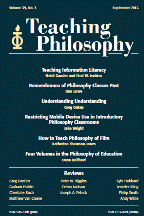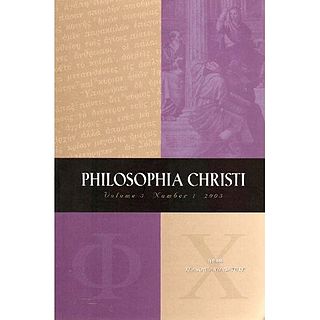
In ethics, casuistry is a process of reasoning that seeks to resolve moral problems by extracting or extending theoretical rules from a particular case, and reapplying those rules to new instances. This method occurs in applied ethics and jurisprudence. The term is also commonly used as a pejorative to criticize the use of clever but unsound reasoning, especially in relation to moral questions. It is the "[s]tudy of cases of conscience and a method of solving conflicts of obligations by applying general principles of ethics, religion, and moral theology to particular and concrete cases of human conduct. This frequently demands an extensive knowledge of natural law and equity, civil law, ecclesiastical precepts, and an exceptional skill in interpreting these various norms of conduct." It remains a common tool for applied ethics.
Bioethics is both a field of study and professional practice, interested in ethical issues related to health, including those emerging from advances in biology, medicine, and technologies. It proposes the discussion about moral discernment in society and it is often related to medical policy and practice, but also to broader questions as environment, well-being and public health. Bioethics is concerned with the ethical questions that arise in the relationships among life sciences, biotechnology, medicine, politics, law, theology and philosophy. It includes the study of values relating to primary care, other branches of medicine, ethical education in science, animal, and environmental ethics, and public health.
Robert L. Holmes is a Professor Emeritus of Philosophy at the University of Rochester, and an expert on issues of peace and nonviolence. Holmes specializes in ethics, and in social and political philosophy. He has written numerous articles and several books on those topics, and has been invited to address national and international conferences.
The American Catholic Philosophical Association (ACPA) is an organization of Catholic philosophers established in 1926 to promote the advancement of philosophy as an intellectual discipline consonant with Catholic tradition. Among the means used to achieve this objective, the organization strives to develop philosophical scholarship, to improve the teaching of philosophy, and to communicate with other individuals and groups with similar aims.
Ethics or moral philosophy is a branch of philosophy that involves systematizing, defending, and recommending concepts of right and wrong conduct. The field of ethics, along with aesthetics, concern matters of value, and thus comprise the branch of philosophy called axiology.
Indirect abortion is the name given by Catholic theologians to a medical procedure which has a beneficial medical effect and also results in an abortion as a secondary effect. Edwin F. Healy makes a distinction between "direct abortions" that is, abortion which is either an end or a means, and "indirect abortions", where the loss of the fetus is then considered to be a "secondary effect."

The Philosophy Documentation Center (PDC) is a non-profit publisher and resource center that provides access to scholarly materials in applied ethics, classics, philosophy, religious studies, and related disciplines. It publishes academic journals, conference proceedings, anthologies, and online research databases, often in cooperation with scholarly and professional associations. It also provides membership management and electronic publishing services, and hosts electronic journals, series, and other publications from several countries.

Teaching Philosophy is a peer-reviewed academic journal devoted to the practical and theoretical discussion of teaching and learning philosophy, that is philosophy education. Established by Arnold Wilson in 1975, it has published more than 2,500 articles and reviews in this field. Notable contributors include Norman Bowie, Myles Brand, Peter Caws, Angela Davis, Daniel Dennett, Alasdair MacIntyre, Rosalind Ladd, Michael Pritchard, Anita Silvers, and Robert C. Solomon. Members of the American Association of Philosophy Teachers and the Philosophy Learning and Teaching Organization have access as a benefit of membership. This journal has a Level 1 classification from the Publication Forum of the Federation of Finnish Learned Societies. and a SHERPA/RoMEO "green" self-archiving policy. It is published on behalf of the Teaching Philosophy Association by the Philosophy Documentation Center.
Michael Alan Grodin is Professor of Health Law, Bioethics, and Human Rights at the Boston University School of Public Health, where he has received the distinguished Faculty Career Award for Research and Scholarship, and 20 teaching awards, including the "Norman A. Scotch Award for Excellence in Teaching." He is also Professor of Family Medicine and Psychiatry at the Boston University School of Medicine. In addition, Dr. Grodin is the Director of the Project on Medicine and the Holocaust at the Elie Wiesel Center for Judaic Studies, and a member of the faculty of the Division of Religious and Theological Studies. He has been on the faculty at Boston University for 35 years. He completed his B.S. degree at the Massachusetts Institute of Technology, his M.D. degree from the Albert Einstein College of Medicine, and his postdoctoral and fellowship training at UCLA and Harvard University.
Mary Twibill Clark was an American Roman Catholic nun, academic, and civil rights advocate. She was best known as a scholar of the history of philosophy, and was associated especially with Saint Augustine.
David DeGrazia is an American moral philosopher specializing in bioethics and animal ethics. He is Professor of Philosophy at George Washington University, where he has taught since 1989, and the author or editor of several books on ethics, including Taking Animals Seriously: Mental Life and Moral Status (1996), Human Identity and Bioethics (2005), and Creation Ethics: Reproduction, Genetics, and Quality of Life (2012).

Philosophia Christi is a biannual peer-reviewed academic journal published by the Evangelical Philosophical Society with the support of Biola University. It covers philosophical issues in the fields of apologetics, ethics, theology, and religion from an evangelical perspective and publishes articles, philosophical notes, and book reviews. The editor-in-chief is Craig Hazen.

Samantha J. Brennan is a British-born philosopher and scholar of women's studies who is currently dean of the College of Arts and faculty member in the Department of Philosophy at the University of Guelph. She was previously a professor in the Department of Women's Studies and Feminist Research at Western University, Canada. She remains a member of Western's Rotman Institute of Philosophy and the graduate faculty of the Departments of Political Science and of Philosophy. Brennan was Department Chair of Philosophy at Western from 2002 to 2007, and 2008–2011. She is a past president of the Canadian Philosophical Association (2017–18).

Henk Antonius Maria Johannes ten Have is Professor emeritus at the Center for Healthcare Ethics at Duquesne University in Pittsburgh, U.S.A. where he has been Director since 2010. Previously, he served in UNESCO as Director of the Division of Ethics of Science and Technology (2003–2010). His recent works are: Global Bioethics—An Introduction (2016), Vulnerability—Challenging Bioethics (2016), Encyclopedia of Global Bioethics (2016), and Wounded Planet (2019).
Medicine, Health Care and Philosophy is a quarterly peer-reviewed medical journal covering the intersection of philosophy and medicine, including bioethics.

Christine I. Mitchell is an American filmmaker and bioethicist and until her retirement in September 2022, the executive director of the Center for Bioethics at Harvard Medical School (HMS).
Joel Michael Reynolds is an American philosopher whose research focuses on disability. His areas of specialization include Philosophy of Disability, Bioethics, Continental Philosophy, and Social Epistemology. He is an Assistant Professor of Philosophy and Disability Studies in the Department of Philosophy at Georgetown University, a Senior Research Scholar at the Kennedy Institute of Ethics, a senior bioethics advisor to The Hastings Center, and core faculty in Georgetown's Disability Studies Program. In 2022, he was named a Faculty Scholar of The Greenwall Foundation in support of his project “Addressing the Roots of Disability Health Disparities." He is the founder of the Journal of Philosophy of Disability, which he edits with Teresa Blankmeyer Burke, and co-founder of Oxford Studies in Disability, Ethics, & Society, a book series from Oxford University Press which he edits with Rosemarie Garland-Thomson.







